
- Home
- DescriptionNews
The way forward of Thai UHC: Address quality and safe care, social determinants of health, primary care, and multi-sectoral collaboration.
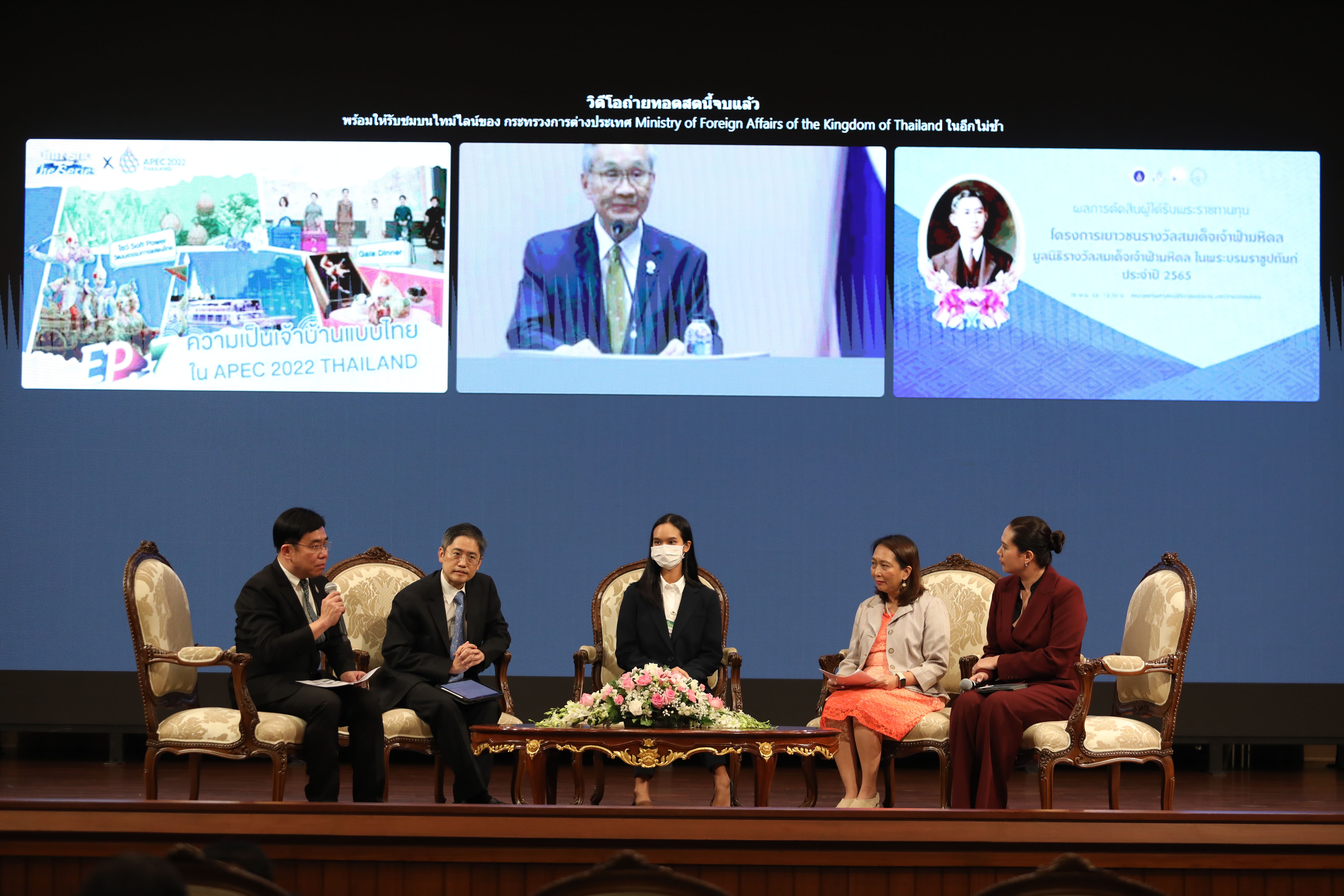
The way forward of Thai UHC:
Address quality and safe care, social determinants of health, primary care, and multi-sectoral collaboration.
Thailand’s Universal Health Coverage (UHC) must improve quality and safe healthcare while addressing social determinants of health, suggested health experts.
Primary care and multi-sectoral collaboration must also be strengthened to ensure the sustainability of the health system in a long run.
On December 9, Thai and international health experts gathered at the Ministry of Foreign Affairs to commemorate ‘International Universal Health Coverage Day 2022’ and urge countries around the world to accelerate their progress toward achieving UHC.
The event was co-hosted by the Ministry of Foreign Affairs, the Ministry of Public Health, the National Health Securirty Office (NHSO), and Thai PBS World with the theme set by the United Nations “Build the world we want: A healthy future for all.”
During the event, the panel discussion “Not a bed of roses: 20-year pathway of Thailand’s Universal Health Coverage – challenges and the way forward” was organized to examine the achievement of Thai UHC and address the challenges that needed to be solved.
Thailand achieved UHC in 2002, leading 99% of the Thai population to access affordable and equitable healthcare.
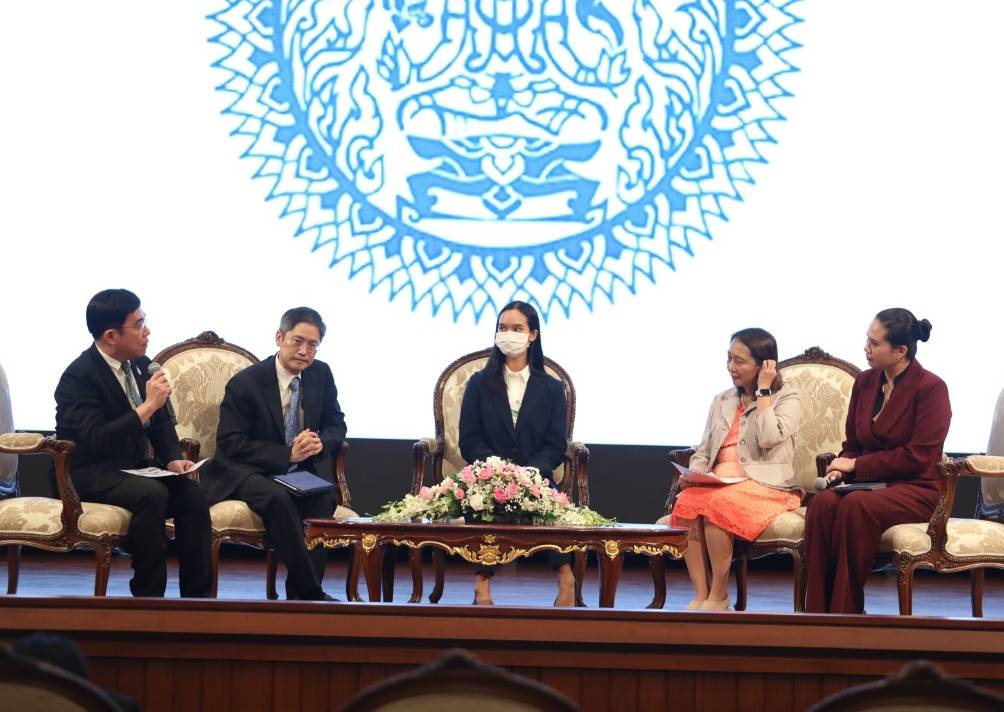
This success is seen as a “miracle” as Thailand was a middle-income country, and still, by the time it achieved UHC. The country was also trying to recover from the 1997 Asian economic crisis then.
Despite this miracle, multiple challenges have emerged in the past recent years.
They include the rising aging population, increasing healthcare costs, and the Covid-19 pandemic that has shaken the health system to its core.
During the panel discussion, health experts emphasized the need to address and solve these challenges with multiple solutions.
Improve quality and safe care
Spoke during the seminar, Dr Jiruth Sriratanaban, a committee of the Healthcare Accreditation Institute of Thailand (HAI), said that the quality and safety of healthcare had been one of the highlighted issues in Thai UHC.
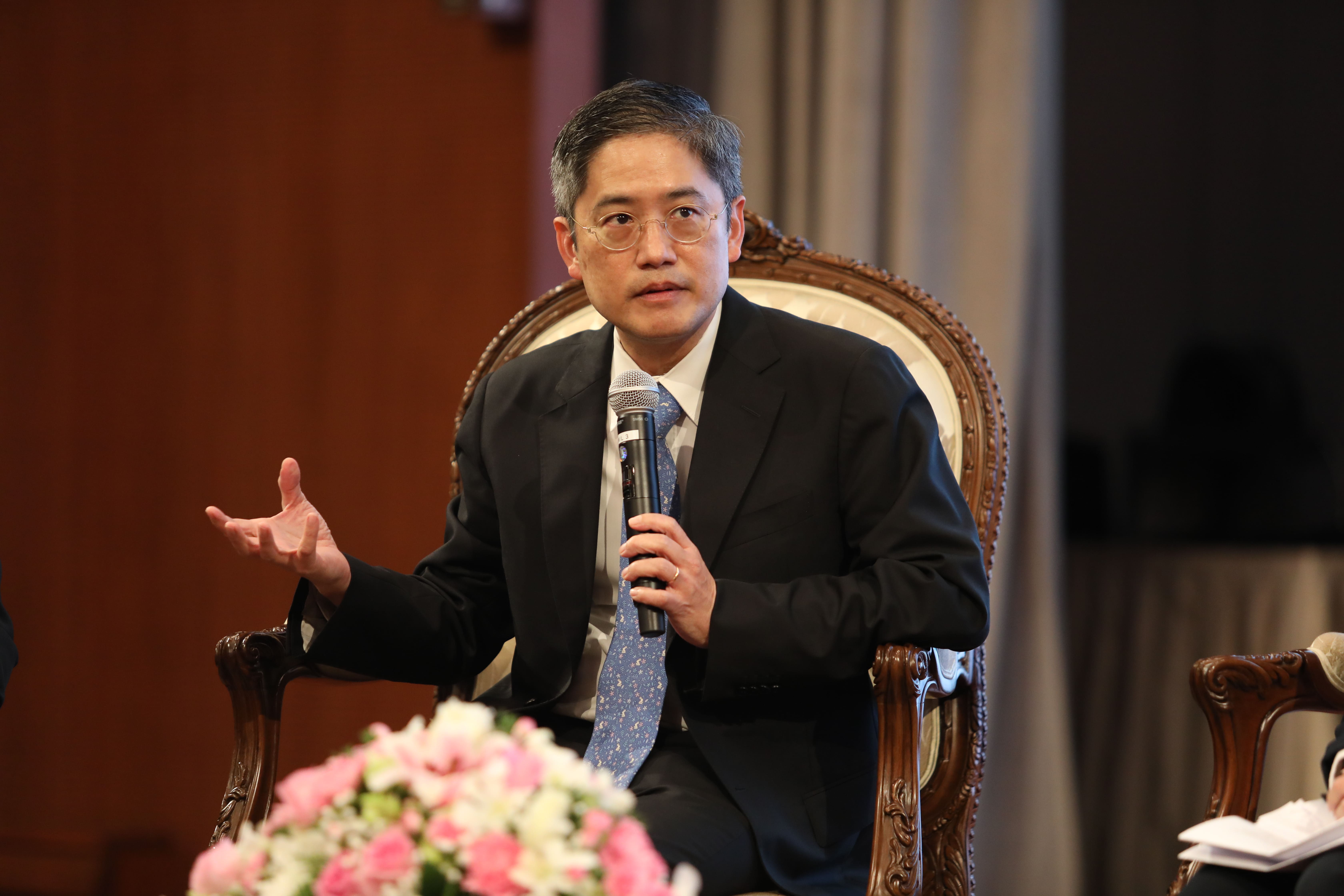
“If we aim to have effective coverage for better health outcomes and equity, coverage is just part of it. You have to make sure that people can also access quality and safe care,” he said.
Dr Jiruth added that countries around the world had also experienced a similar challenge.
One study suggests that 10% of hospital-admission patients may experience adverse events, around 10% of leading to mortality.
These errors are not mainly caused by health professionals, but by the imperfect management system.
In Thailand, HAI has collaborated with several organizations, including the NHSO and other healthcare schemes’ operators, the Ministry of Public Health, public health schools, and medical professional bodies to improve quality and safe care.
They co-launched the “Patient and Personnel Safety (2P Safety)” initiative in 2016, in which 850 out of 1,400 hospitals nationwide voluntarily participated.
They report unsafe healthcare incidents to the national system, so governmental and public organizations can learn from the data and find solutions to improve the quality and safety of healthcare services.
“It’s not easy to get hospitals to report their mistakes… But if you can declare errors, you are ready to learn and come up with preventive solutions,” said Dr Jiruth.
The number of reports has increased since the start of the program, showing that hospitals are willing to learn and improve.
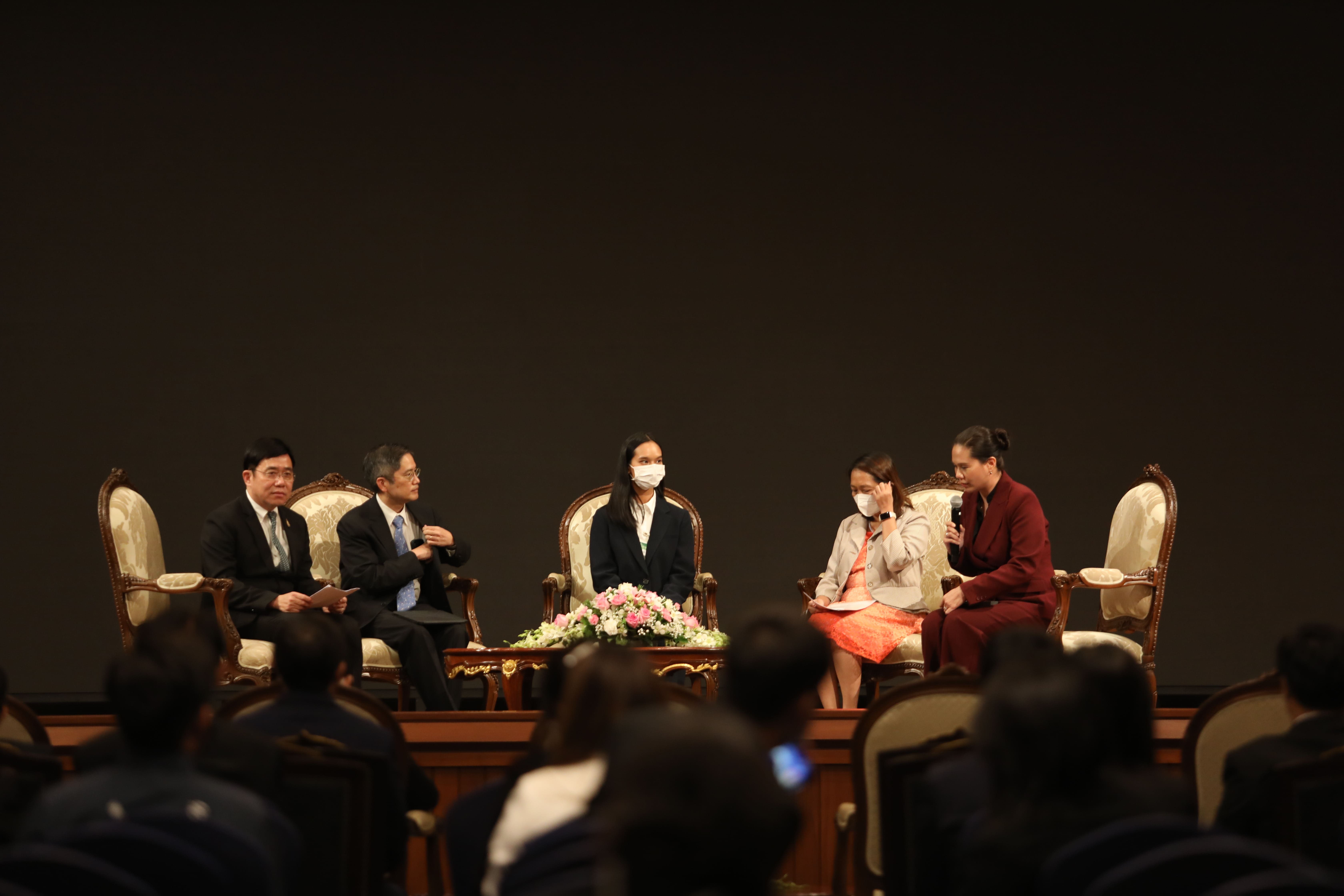
On the other hand, the reports of serious adverse incidents (which require medical treatment corrections or result in disabilities and death) have gradually declined — meaning the hospitals can improve their quality and safety of services while reducing medical errors.
Address social determinants of health
“If you want to strengthen health security, good management and health system design is the contributor. But, still, you need money. We have to keep the economy growing and come up with mechanisms to distribute wealth to the people,” added Dr Jiruth.
Some studies show that the most critical determinant of health is wealth — resulting in people accessing healthy lifestyles, from having quality education and public transport to good food and nutrition.

Dr Olivia Nieveras, Acting WHO Representative to Thailand, agrees that social determinants of health, especially environmental health and climate change, must be addressed for sustainable healthcare.
“Health is not an isolated issue,” she said.
Dr Nieveras praised the Thai UHC for improving people's health and expanding coverage in the past 20 years, making Thailand at the forefront of the world’s effort to promote and accelerate UHC.
“I want to highlight the importance of quality and safe healthcare. The coverage of the population, health benefits, and financial protections are three dimensions of UHC.
But there is the fourth dimension, which is the quality and safe care,” she said.
There are other challenges needed to be addressed in the following decades of Thai UHC, she added, which include the aging population and the increasing healthcare demands.
Strengthen primary care
Strengthening primary care is one of the areas needed to be improved, said all speakers in the panel discussion.
“We have the health system but it needs to be transformed into the system for health,” suggested Dr Nieveras.
“We need to talk about health promotion and disease prevention rather than treatment… We have to build a health system of wellness rather the illness.”
She said that every individual should contribute to the health system by being collectively responsible to achieve a high level of good health.
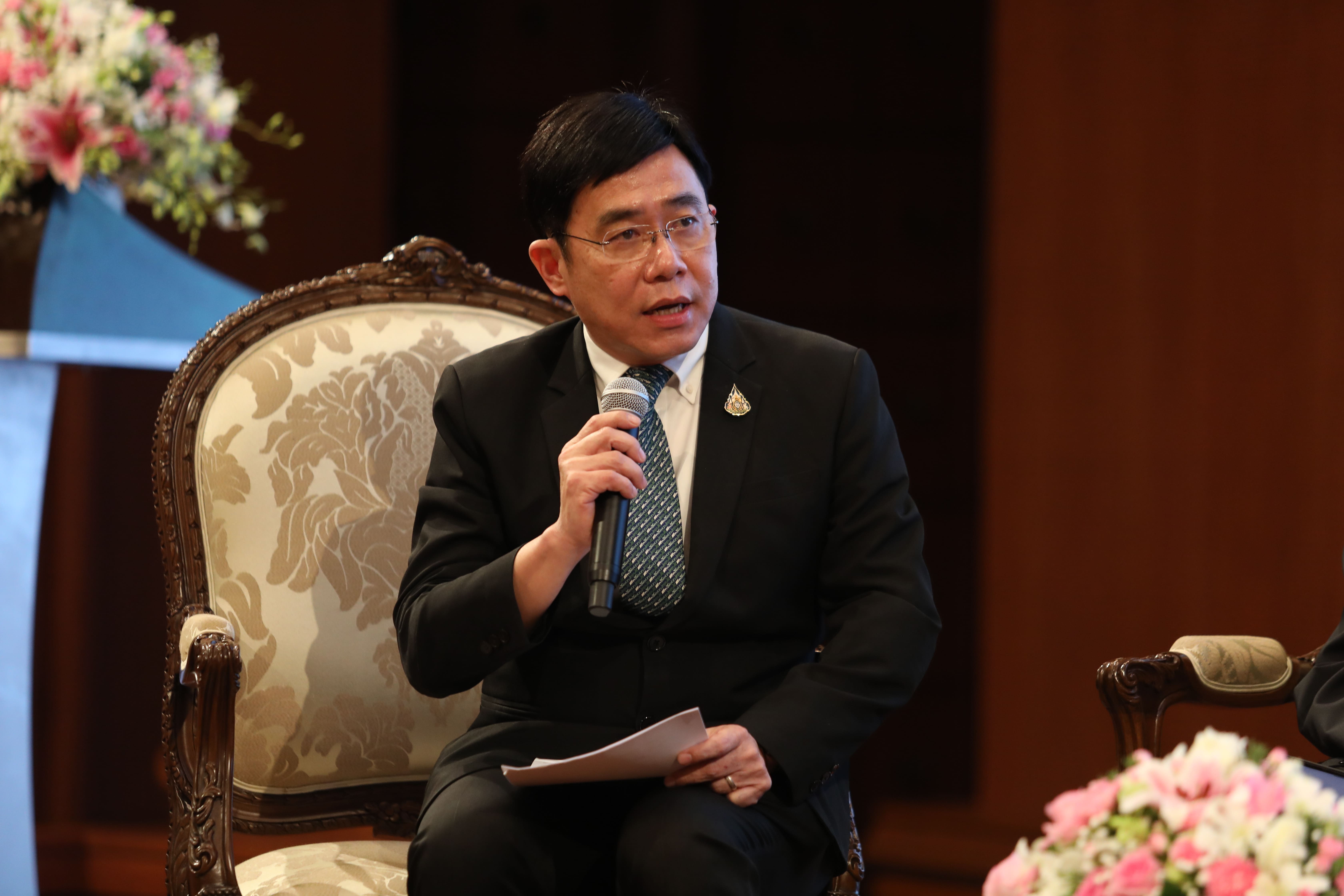
Similar to Dr Rungrueng Kijphati, the Public Health Ministry’s representative, who stated during the panel discussion that promoting “self-care” must be included in the goal of UHC.
“Most people focus on treatment. But the most important action is health promotion and disease prevention that encourages Thai people to take care of their health, instead of relying on doctors and hospitals,” he said.
“The health benefits must emphasize health promotion and disease prevention, which must be accessed at the local community level, instead of consolidating at hospitals.”
During the Covid-19 pandemic, primary care became a game changer as it involves the communities, local governments, and health providers in tracking and tracing Covid-19 cases.
It also provided people with entry points for getting timely treatment, reducing the chance for them to spread the virus.
Learning the crucial role of primary care, Dr Rungrueng said that the Public Health Ministry had been working with its partners to increase primary care access — by revising the regulation to allow people to get primary care services at any health unit regardless of their registry addresses.
Enhance multi-sectoral collaboration
Though devastation to the economy and society, the Covid-19 pandemic shows the great benefits of multi-sectoral collaboration to achieve better health outcomes.
In Thailand, Dr Rungrueng observed the launch of many new initiatives during the health crisis that relied on extensive collaboration.
Those include the involvement of pharmacies in caring the coronavirus patients and the increasing use of telemedicine as a platform of collaboration to take care of patients isolated at home.
“Covid makes impossible possible. Unacceptable acceptable. It helps us be more creative. We have learned from the situation that we can keep good things continue, and try to improve not-so-good things,” said Dr Jiruth from HAI.
In response to the pandemic, the HAI wrote a new chapter on telemedicine and home-based care in the hospital accreditation guideline to ensure the quality and safety of both services.
The institute is also working on the policy for standardizing primary care, which will foster and encourage quality improvement. It will be piloted across the country in the next two years.

Phatthanamon Sinsawat, a representative from the International Federation of Medical Students Association (IFMSA-Thailand), said during the panel discussion that multi-sectoral collaboration will be needed for the sustainability of Thai UHC.
The collaboration may be extended to philanthropies and the private sector which can fill up the gap in health finance as the Thai government is being challenged by increasing healthcare expenditure.
She added that the youth could play an important role in the future of UHC, including conducting research and promoting the benefits of UHC on social media.
“We must include all stakeholders in the policy decision, including youth and marginalized people,” she suggested.
“The government should invest more in the public health sector and primary care while expanding the coverage of high-cost health services.”
////////////////////////////

